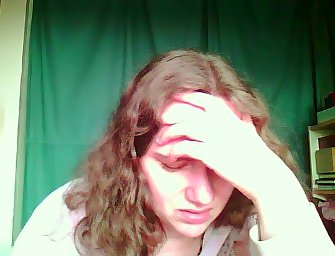Caffeine Addiction, Dependency, and Withdrawal
Wikipedia: Caffeine_addictionLast Updated: Mar. 5, 2012Caffeine, a stimulant naturally occurring in tea, coffee, Yerba mate, and a few other plants, is mildly addictive. Although caffeine is significantly less addictive than stimulants such as cocaine and amphetamines, it does cause a physical dependency, especially when consumed in large quantities. However, this physical dependency is mild enough relative to other addictive drugs that WebMd has made the claim that the idea that caffeine is addictive is a myth.[1]
The amount of caffeine in tea tends to be significantly less than in coffee, so the withdrawal symptoms associated with stopping drinking tea tend to be much less than those associated with stopping drinking a similar quantity of coffee. However, the tolerance to caffeine, which is quickly developed, also nullifies any benefits of the caffeine in terms of concentration, alertness, mood, energy level, or motivation. Because of this tolerance, people's perceived benefits associated with caffeine consumption may actually be a simple reversal of the withdrawal symptoms.[3][5]

Headache is one of the main symptoms of caffeine withdrawal.
Caffeine withdrawal symptoms and duration
Caffeine withdrawal tends to be mild and brief, compared to the withdrawal of a number of other addictive drugs. However, its severity depends on the quantity of caffeine to which a person is accustomed to: a person who stops drinking caffeine completely will encounter stronger withdrawal symptoms, the more caffeine they were accustomed to drinking. Different people also have different reactions to caffeine, and, in different people, ceasing caffeine consumption may result in withdrawal symptoms ranging from very unpleasant to none at all.The symptoms of caffeine withdrawal include headache, low energy levels, and trouble concentrating. In more severe cases, caffeine withdrawal can manifest in flu-like symptoms, including malaise, muscle pain, and nausea. Effects on mood can include depression, irritability, and anxiety.[2] Most of the worst symptoms of caffeine withdrawal last only a few days at most.[1] Caffeine withdrawal has recently been classified as a disorder and recommended for inclusion in the Diagnostic and Statistical Manual of Mental Disorders;[3] this classification does not imply that caffeine withdrawal is any more serious, but it mainly helps to clarify its symptoms, so that people showing these symptoms can be screened for possibly experiencing caffeine withdrawal rather than other more serious conditions.[4]
Prevention and remedies
The key remedy for caffeine withdrawal is time. The worst of the withdrawal symptoms are usually gone after a few days. People who wish to halt or reduce their caffeine intake can minimize their withdrawal symptoms by scaling back the amount of caffeine gradually, rather than stopping all at once. If caffeine withdrawal is interfering with work, one remedy is to continue consuming caffeine until there is a convenient time to tough out the symptoms for a couple days, such as a weekend or break.References:
1. Caffeine: Myths and Facts, WebMd, Retrieved Jan. 18, 2012.
2. Laura M. Juliano and Roland R. Griffiths, A critical review of caffeine withdrawal: empirical validation of symptoms and signs, incidence, severity, and associated features, Psychopharmacology, Vol. 176, No. 1, 2004.
3. Caffeine Withdrawal Recognized as a Disorder, Press Release, Johns Hopkins Medicine, September 29, 2004.
4. Holly Pohler, Caffeine Intoxication and Addiction, The Journal for Nurse Practitioners, Vol. 6, No. 1, pp. 49-52, Jan, 2010.
5. Jack E James, Peter J. Rogers, Effects of caffeine on performance and mood: withdrawal reversal is the most plausible explanation, Psychopharmacology, Vol. 182, No. 1, pp. 1-8, 2005.

